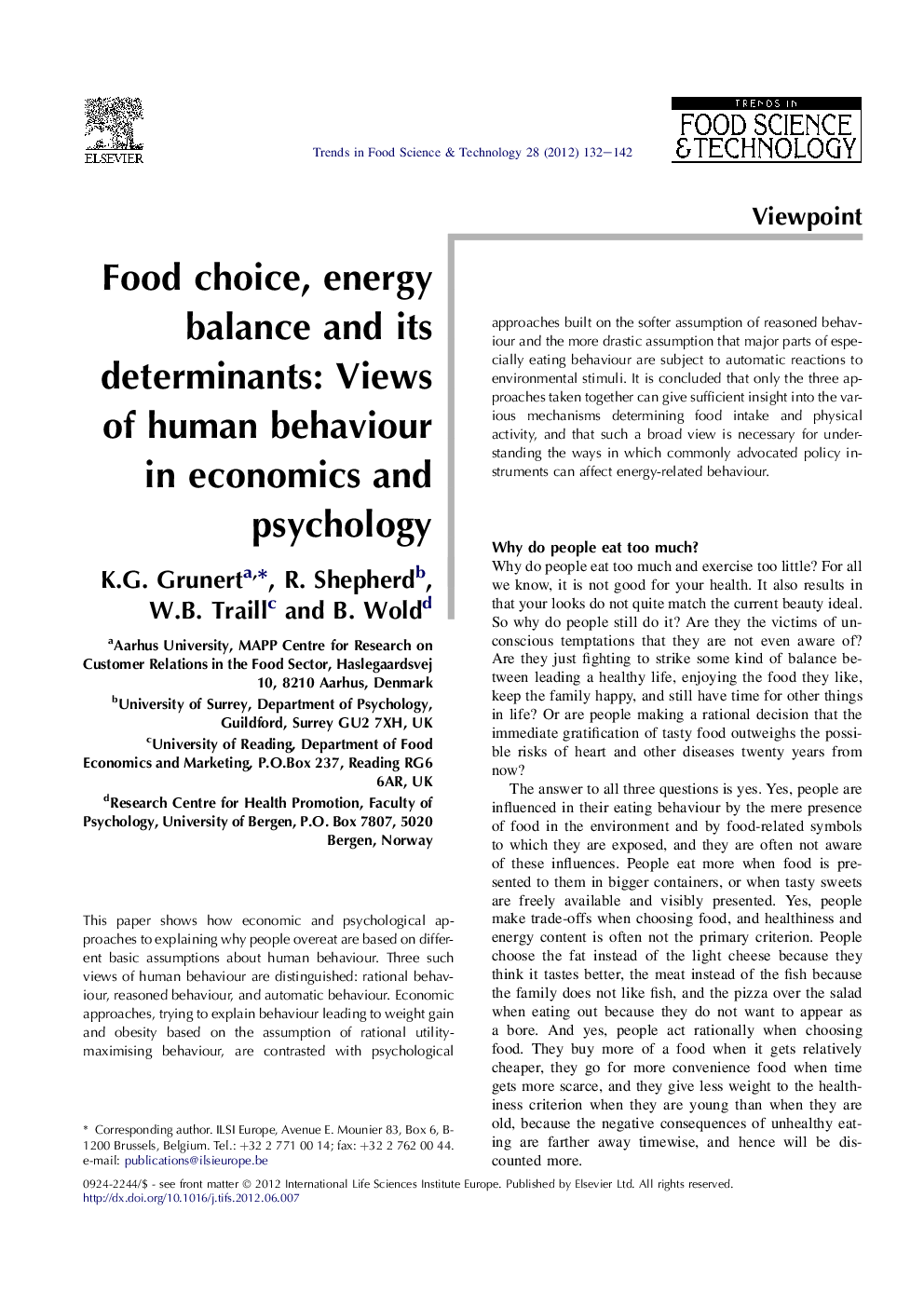| Article ID | Journal | Published Year | Pages | File Type |
|---|---|---|---|---|
| 2099865 | Trends in Food Science & Technology | 2012 | 11 Pages |
This paper shows how economic and psychological approaches to explaining why people overeat are based on different basic assumptions about human behaviour. Three such views of human behaviour are distinguished: rational behaviour, reasoned behaviour, and automatic behaviour. Economic approaches, trying to explain behaviour leading to weight gain and obesity based on the assumption of rational utility-maximising behaviour, are contrasted with psychological approaches built on the softer assumption of reasoned behaviour and the more drastic assumption that major parts of especially eating behaviour are subject to automatic reactions to environmental stimuli. It is concluded that only the three approaches taken together can give sufficient insight into the various mechanisms determining food intake and physical activity, and that such a broad view is necessary for understanding the ways in which commonly advocated policy instruments can affect energy-related behaviour.
► Overeating and lack of physical activity can be explained by different mechanisms. ► Economics explains overeating as rational behaviour. ► In social psychology, both are related to personal and interpersonal factors. ► Also, unconscious reactions due to external stimuli play a role. ► Policy instruments to affect energy intake influence only one of these mechanisms.
